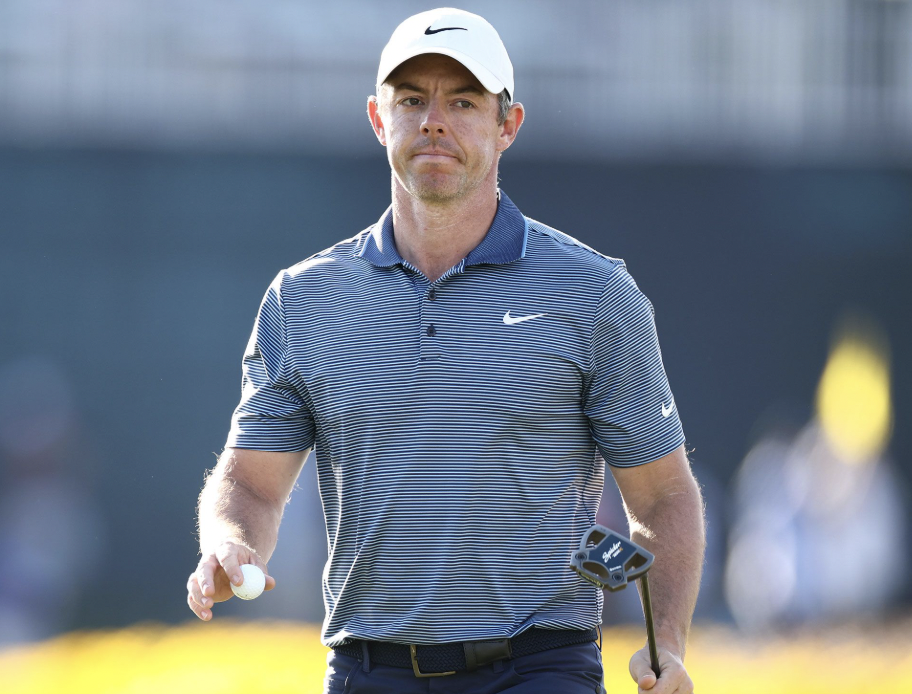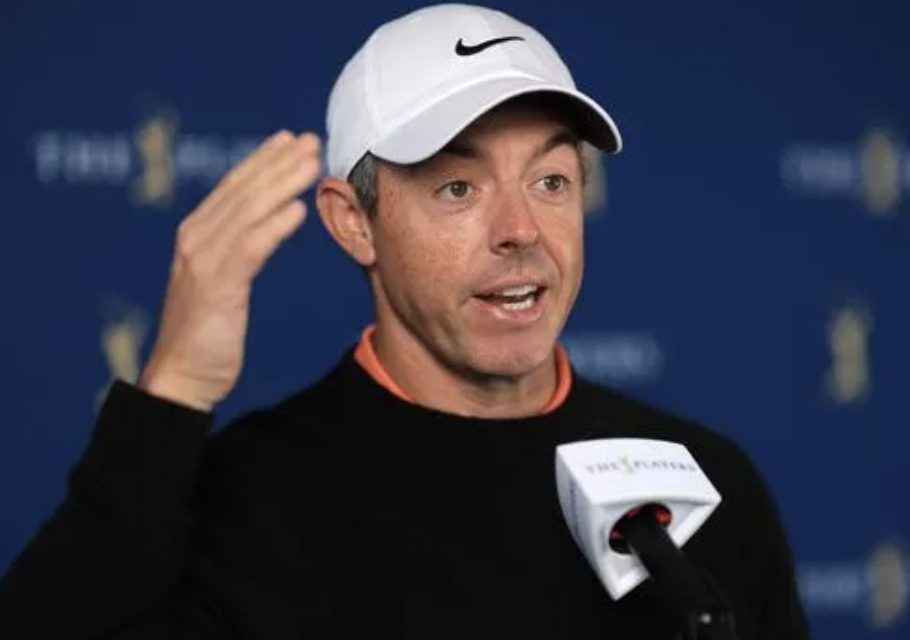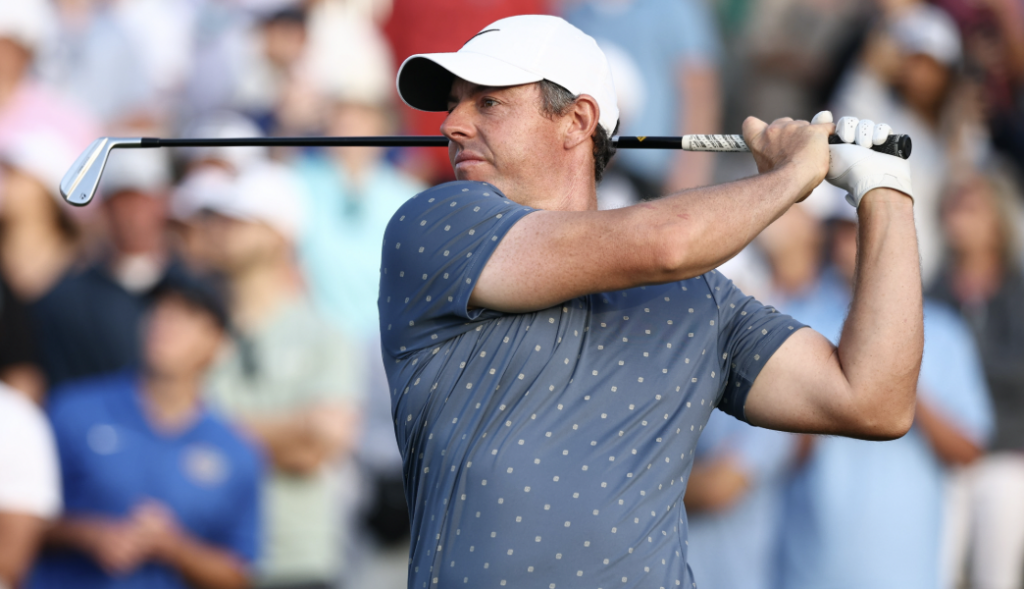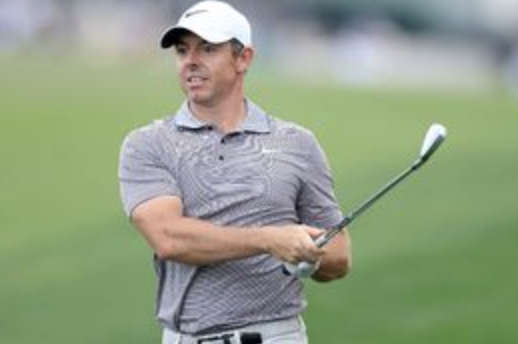Rory McIlroy openly mocks YouTube golfers, igniting a heated debate: “Are they really professional athletes or just internet performers?”

Image: Getty Images
Rory McIlroy, the Northern Irish golfing superstar, recently sparked a significant controversy by publicly criticizing YouTube golfers and their influence on the sport. As a prominent figure in professional golf, McIlroy’s stance has drawn the attention of both fans and fellow athletes, igniting a spirited discussion on the nature of modern golf and its representation in the digital age. With the proliferation of golf content on platforms like YouTube, the question arises: Are these content creators true professional athletes, or are they merely internet performers?
The Rise of YouTube Golf Content
The last decade has seen a meteoric rise in the popularity of YouTube golf channels, with numerous creators attracting millions of subscribers. Creators like Paige Spiranac and Rick Shiels have leveraged their charisma and expertise to build strong followings while providing entertainment and lessons for golf enthusiasts. On platforms like these, golf tips, course vlogs, and edited trick shots dominate the landscape, transforming the way fans engage with the sport.

Image: Getty Images
However, this shift towards digital content has drawn the ire of traditionalists who believe the essence of competitive golf is being compromised. McIlroy’s remarks reflect a broader concern about the dilution of the sport’s prestige as YouTube influencers gain significant attention, sometimes overshadowing the accomplishments of season professionals on courses around the globe.
McIlroy’s Preference for Traditional Golf
In a media interaction before the Players Championship, Rory McIlroy voiced his critiques of the YouTube golf phenomenon. Acknowledging his preference for what he described as “pure” competitive golf, he stated, “I’d much rather watch pure, competitive… I’d much rather watch this golf tournament on Sunday than watch YouTube golf.” His perspective is rooted in a desire for the sanctity of professional golf to be maintained amidst the growing fascination with entertainment-focused content.

Image: Getty Images
Despite the undeniable success of YouTube creators, McIlroy’s arguments emphasize the importance of traditional tournament play. He believes that while these creators manage to engage with audiences, they aren’t necessarily contributing to the authenticity or competitiveness that golf is known for. The golfers who compete at the highest levels should take precedence in the narrative surrounding the sport, McIlroy argues.
The Implications of McIlroy’s Critique
McIlroy’s criticism of YouTube golf comes at a time when viewership for the PGA Tour has witnessed notable declines—reports indicate a 19% drop in ratings for Sunday broadcasts in recent years. Many fans are left wondering if the sport’s traditional viewing practices are becoming obsolete due to the entertainment value of digital platforms. McIlroy’s remarks not only point to his anxieties about viewership but also underscore the apparent competition between traditional golf and its online counterparts.

Image: Getty Images
This debate raises an essential question: Should golfers who create entertaining content be considered professional athletes? Or do they simply occupy a space that prioritizes style over substance? While both forms can coexist, McIlroy’s opinion suggests a hierarchy where established professional athletes hold the top position, expecting that they retain the respect and reputation synonymous with their hard-earned accomplishments.
The Future of Golf in the Digital Age
As golf continues to evolve in the digital era, it’s clear that players like Rory McIlroy are struggling to adapt to the surge of online content creators who are redefining the sport’s landscape. The reality is that golf’s appeal has broadened, capturing diverse audiences and attracting younger fans who prefer dynamic content over traditional broadcasts. This shift undeniably influences how the sport is marketed and consumed.

Image: Getty Images
As the lines continue to blur between competitive golf and an entertainment-focused format, both camps will need to find common ground. The challenge will be for established professionals to find ways to engage new audiences while preserving the core values of the sport. Meanwhile, creators on digital platforms must tread carefully to ensure they respect the legacy of traditional golf while forging their own paths.
Ultimately, McIlroy’s mockery of YouTube golfers might just be a call for protection—protection of the sport’s sanctity amid a fast-paced world that increasingly prioritizes viral content over sporting excellence.

Image: Getty Images
Conclusion
As the debate continues about the legitimacy of YouTube golfers as athletes, it’s essential for fans and players alike to consider the broader implications of this growing trend. Whether you agree with McIlroy or not, engaging in discussions about the future of golf in both traditional and digital formats can only serve to enrich the sport.
Join the conversation today about how we can cultivate a new era of golf that honors its heritage while embracing innovation!